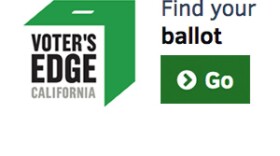Inside a cavernous cement trough at the North City Water Reclamation Plant, pulleys and chains create the complicated machinery that filters impurities from sewage water to create about 12 million gallons of recycled water every day.
The resulting "purple" water is clean enough to use on lawns, but not clean enough to drink. City officials hoped this recycled water would replace potable water as a landscaping tool. It does, but not on the scale hoped.
The plant only sells about half of the water it is capable of producing because potential customers have found the cost of installing a separate purple pipe system to transport the water too expensive.
But there is hope that the plant could finally realize its potential. City officials think the treatment threshold could be increased enough to create water that meets drinking water standards.
Proposition 1, the state water bond on the November 4 ballot, might be a key. The $7.5 billion bond would allocate money for projects that include water treatment, watershed management, and water storage.
Prop 1: Where The Money Flows
• $2.7 billion for water storage projects, dams and reservoirs
• $1.5 billion for competitive grants for watershed protection and lake, river and stream restoration projects
• $520 million to improve water quality for "beneficial use," for reducing and preventing drinking water contaminants, for disadvantaged communities, and for small community grants
• $810 million for expenditures on and competitive grants and loans to drought and climate change mitigation projects
• $725 million for wastewater and saltwater recycling
• $900 million for competitive grants and loans for projects to prevent or clean up contamination of groundwater that serves as a drinking water source
• $395 million for statewide flood management projects and activities
Source: Ballotpedia, California Proposition 1, Water Bond (2014)
The bond price tag is significantly lower than the legislature-approved bond measures passed in 2010 and 2012. Both of those funding packages were worth more than $10 billion and backers ended up pulling them from the ballot because they worried voters would not approve them.
A lot of the political work on this bond measure involved paring down the two earlier versions. California Assembly Speaker Toni Atkins worked with the governor and other top state officials to craft a package that they felt voters could back.
"You know, $7.5 billion doesn't go as far as we would hope it would go for our infrastructure. But it's a critical start," Atkins said.
The San Diego representative said voters should take the legislature's lead. The bond measure got unanimous support in the state Senate and fell just two votes shy of the same result in the Assembly.
Governor Jerry Brown thinks the measure is critical to easing the pressure from the current historic drought. He is spending his own re-election money on ads asking voters to back Proposition 1 and Proposition 2, which would require the state to set aside money each year in a “rainy day” fund to help the state in times of budgetary drought.
Brown said in an ad, "With the worst drought on record, we've seen devastation across California: our reservoirs, way, way down; land where there used to be water. Props. 1 and 2 have near unanimous support because Prop. 1 saves water to protect us during times of drought. And Prop. 2 saves money in good times to protect schools and public safety when times are bad. Save water. Save money. Vote yes on 1 and 2."
Politicians, business and labor groups, and water agencies such as the San Diego County Water Authority, populate the long list of supporters. The Water Authority's Dennis Cushman said the bond money is crucial for developing critical water resources.
"It'll be a catalyst for getting projects started faster and sooner," Cushman said. "And we need those projects going right now to deal with not only our long term water supply needs as a region here in San Diego and in California, but also to make our region and state more resilient to droughts."
But there are plenty of people who don't agree. People fighting over the future of the Sacramento-San Joaquin Delta, and environmentalists and political advocates are speaking out against the measure. Opponents argue the bond is full of pork-barrel spending that will do little to help ease the current drought.
A "No on Prop. 1" ad shows a barren hillside above a shrinking reservoir. "Little Water. All new debt," said the script in the ad. Somber piano music plays in the background. "Less money for schools, more money for big Ag," it continues.
Marco Gonzalez works with the Coastal Environmental Rights Foundation, a group opposing the bond. He said too much of the money in the borrowing package gets spent elsewhere.

"It really focuses most of the money on Northern California, and it really focuses on basically corporate agricultural interests," Gonzalez said. "It doesn't give us what we need down here in San Diego at the end of the pipe in terms of long-term water supply benefits."
Gonzalez argued the Proposition 1 money would fund the kinds of projects that have already left California unprepared for the current drought. He said lawmakers need to stop passing bond measures that are designed to win political support, but that he believes do little to fix problems.
"We need a fix for the Bay Delta. We need a fix for communities like San Diego, with big multi-billion dollar problems with their water infrastructure," Gonzalez said. "What we don't need are these little $5 to $10 million projects that make someone happy, but don't give us new water."
If voters decide to back Proposition 1, the state would borrow the $7.5 billion and then repay the money from the general fund over 40 years. That would cost about $360 million a year.
The total repayment cost would come to more than $14 billion.








